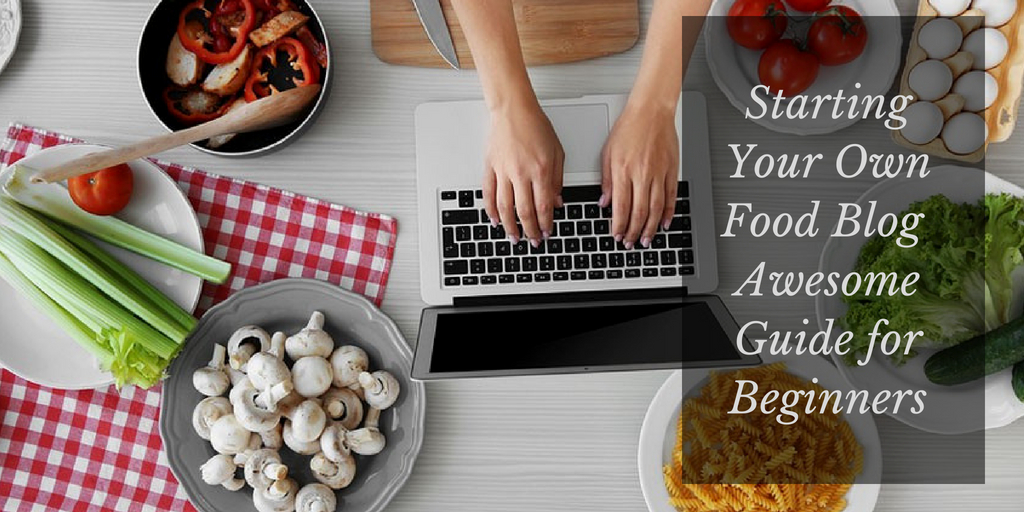
If you are dying to share killer recipes and stellar cooking tips; if you are itching to post your food images but not sure how to start a food blog, then read this post, an awesome guide, curated just for the beginners.
Everyone likes eating… but do you love food; like the sight of it and the smell of it? Are you intrigued by the ingredients that go into making a dish so much so that you end up trying new recipes? If you do, then you might as well start a food blog of your own.
Food blogs can be easily made popular and are also a good source of income. But like all freelancing jobs, starting your own food blog needs strategies and plan of action.
Freelancers, You have two options….
First, check your network and hire a web designer to build a food blog for you. If you have the money to spend, well then a personalised food blog is a great option for a starter.
Second, build your own self hosted WordPress site. Most food bloggers choose option two and have their own hosting. A web hosting will not cause you more than $3 per month. Your total cost of a WordPress theme and self-hosting will not exceed $5 a month. Cheap enough?
Now that you know the basics of starting a blog i.e. the blog site itself, let’s get to more interesting topics.
Why Should You and Why Shouldn’t You Start a Food Blog?
Every occupation, work, job, profession has a flip side, besides the brighter side. So if you want to know the pros of starting a food blog, you should be aware of the cons too.
Advantages of Having a Food Blog
- You are your own brand; you are the business owner; you are the alma-matter, you are the profit maker
- Build your own food community
- Inform and educate people with tips, guidelines and recipes
- Turn your passion i.e. eating food into a full time business
- Cook new recipes and earn an income
- Channel your thoughts and skills, and create great recipes
- Become a talented photographer
- Affiliate programs, ads and sponsorships – all easy ways of monetization
- Open doors to other opportunities – cooking shows, organize events, classes, writing books, travelling and meeting renowned chefs, if you get lucky
Disadvantages of Having a Food Blog
- It can take time to build followers, viewers and persistent readers
- Successful blogs need solid and informative content; you have to be a good writer and might have to do extensive research before suggesting tips and advices
- You need to blog frequently, every day if need be, to drive traffic. This means cooking new recipes, coming up with new ideas, photoshoots and editing work everyday
The cons aren’t much, you see. And, any career option you choose, working your mind off in the beginning is inevitable. In short, if you love cooking and eating, food blogging is your ally.
Starting a Food Blog
1. Decide Your Niche
Choosing a particular niche always work better and garner more viewers than general food blogging. Niches could include baking, Indian cuisine, vegan dishes, sugar free food, veg recipes, Chinese cuisine and the likes.
2. Choose a Domain Name
Choose a name that would describe your niche or (and) is available as a domain name. You start with short sentences or words that list your lifestyle, cooking style, city, home-land, dog name, cat name or anything. An ideal blog name should be:
- Easy to pronounce
- Easy to remember
- Eye catchy
- Short
- Descriptive
However, don’t mention anything specific, (such as bettydesserts or chocolate&fudges) because later if you plan to expand your recipe section, your blog name wouldn’t cooperate. Once you have decided on your blog name, check its availability on a domain name checking tool.
3. Purchase Domain, Web Hosting and WordPress Installation
After having your domain name checked and approved, you get to the work of creating your own blog. If you are going through a web development company then you won’t have much work to do other than shelling money out. But if you decide to host your blog then you have two options:
- Create a blog on free sites like blogsspot.com, Weeby and Blogger or
- Host your own blog, as informed earlier
Hosting your own blog is more profitable and successful. You have to purchase a domain name and choose a web hosting provider that offers WordPress Installation. WordPress is the easiest and most popular content management platform.
Your web-host provider will guide you on how to install WordPress. Once installed, you have to choose a theme that would bring the best out of a food and photography blog post. A great WordPress theme should have:
- Aesthetic features and well developed codes
- Responsive designs with optimal viewing experience
- SEO
- Continuous technical support
After this, ensure that you install basic plugins like social media tools for sharing content, caching to make your site load faster, Google Analytics and contact form for communication.
4. Upload Around 10 to 15 Recipes
Before your blog goes live, make sure you add atleast 10 to 15 recipes so that readers are glued to your site for more than few minutes. Create a blogging schedule and ensure that at least 5 recipes are added each week to keep the traffic flowing.
Appetizing photos, step – by – step instructions, witty anecdotes such as history, important tips, revisions and notes and special healthy facts about ingredients are must for an effective food blog.
5. Develop Online Marketing Plans for Promotion and Monetisation
You always can’t fully rely on search engine optimisation to drive traffic; you have to do your own bit as well.Share your blogs on social media sites like Instagram (topping the chart), Facebook, Pinterest and Twitter.
Use offline marketing strategies as well, such as reaching out to friends, relatives and colleagues.While making videos, ensure you publish them on YouTube too.
Once your flow of visitors increases, start adding money making resources such as affiliate programs and Google AdSense. Once your business grows, do take care of the business legal matters and freelance taxation system.




